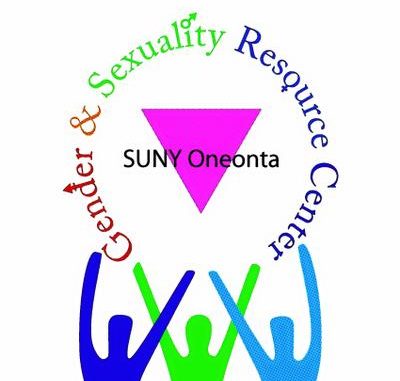
Katie Hebert, Staff Writer |
Thursday, Feb. 21, marked the second session of the Spring 2019 Gender and Sexuality Resource Center’s Dialogue Series. This session was hosted by Dr. Charlene Christie, a professor of psychology and the chair of Women’s and Gender Studies at SUNY Oneonta.
Christie discussed part of her current research, touching upon the concept of “concealable stigma and self-disclosure,” while several identities many prove to be evident upon a first meeting a person, some are not as easily recognizable. This concept of a concealable stigma focuses on identities that are marginalized and devalued in society. Dr. Christie points out how, within the first five minutes of meeting someone, we are looking to identify someone, and we observe the identities of race, age, gender, size, and ability for those markers of someone’s identity. Her main focus in this research is understanding how certain members of the LGBTQ+ community manage to balance and understand this concealable stigma. Despite the fact that disclosure is something that everyone in the LGBTQ+ community ends up having to confront.
That being said, the idea of disclosure comes with a lot of questions and decision making—who do you disclose to? How and when do you disclose? Often times, marginalized people choose to disclose in hopes of finding community members, but trying to gage that someone might be in your group might be difficult if no one says anything, creating more isolation and lack of community.
The concept around the all too common microaggression: “you don’t look queer” was also brought up, continuing with this concept of community as we see how queer culture has been capitalized upon; when straight people go to spaces that are inherently queer (such as gay bars or pride parades), how do you find community even with coded ways of telling people through certain markers? How do you use coded markers to find community when holding this marginalized identity also risks individial safety in many situations?
When asked about the energy involved in the decision to disclose, as well as the implications within the making of such a heavy decision, Dr. Christie acknowledged the measure of distraction and how the dichotomy of disclosing and concealing represents a lot of interpersonal types of outcomes. When one is concealing because there is a clear distraction and the person starts to seem less available, as if to keep a secret. When holding a marginalized identity, where disclosing relies on the anticipation of prejudice and harm, it seems reasonable to carry it as you would a secret. Dr. Christie says, “Everytime you don’t say something, that’s a decision you make;” noting that it’s not just deciding when it may be better to say something, it’s also deciding when to not say anything.
The discussion progressed into introducing the fact that many of members of the LGBTQ+ community are tired of the concept of “coming out,” recognizing how the idea of concealing and disclosing plays into heteronormativity and perpetuates the idea of how people who aren’t straight have to come out. Coming out and disclosing your identity becomes a constant cycle in the life for someone who identifiwes as queer, and the idea of having to conceal your idenity in the first place is one sadly still instilled in our society today.
Dr. Christie’s research on this topic is connected to those studying in the gender studes field, including Dr. Diane Quinn from the University of Connecticut, whose work with concealable stigma, focuses on mental illness and psychological health and well-being. Her research focuses on a group of SUNY Oneonta students and aims to get it published in the future. Dr. Christie makes a point to say that the concept of concealable stigma works with many different levels of identity and experience, as the self-disclosure of queer identities parallels with mental health, reproduction and abortion, sexual assault and domestic violence, and incarceration. These are aspects of individual experiences that people don’t know on first glance. The act of sharing requires making the decision between concealing and disclosing.
The next GSRC Dialogue Series session will be March 14, after spring break. Dr. Kristen Blinne, who will host the event, focusing on the complexities of cultural appropriation. The Gender and Sexuality Resource Center is located in Hunt Union 5A and is open Monday through Friday 12:00 p.m. to 7:00 p.m.
Leave a Reply